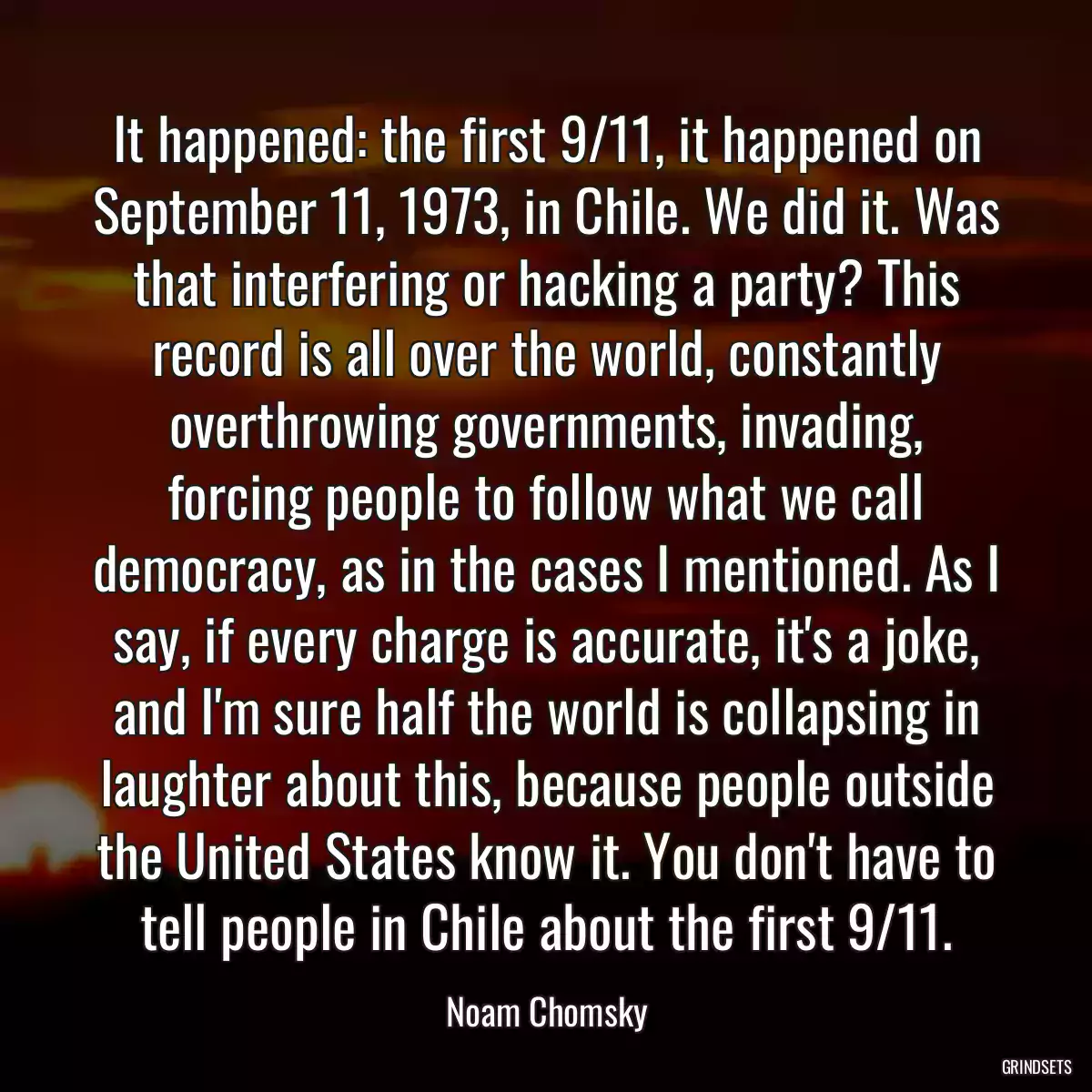
In the United States, the day when you pay your taxes is a day of mourning because this alien force - the government - is coming to rob you of your hard-earned money. That's the general attitude, and it's a tremendous victory for the opponents of democracy, and, of course, any privileged sector is going to hate democracy. You can see it in the healthcare debate.

![Part of the uprising of Latin America, particularly in the last 10 to 15 years, has been a reaction to [neoliberal regime], and they have thrown out a lot of these measures and moved in a different direction. In earlier years, the US would have overthrown the governments or, one way or another, curtailed them. Now, it can\'t do that.](/fotos/54/54e3bd60a45b1f543ec7ecf14d785d55.webp)